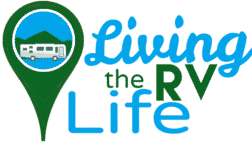 Like many Canadians, Alan Hong and his wife invested in a trailer in 2020 amidst pandemic travel restrictions, opting for outdoor adventures over air travel. Now, however, they’re considering a return to the skies.
Like many Canadians, Alan Hong and his wife invested in a trailer in 2020 amidst pandemic travel restrictions, opting for outdoor adventures over air travel. Now, however, they’re considering a return to the skies.
“We initially planned to use the trailer sale proceeds for more international travel,” explained Hong, a resident of Calgary, aged 37.
During the pandemic, recreational vehicles (RVs) and other outdoor vehicles experienced a surge in sales as people redirected their vacation budgets to enjoy activities closer to home. But now, like trends seen with Pelotons and semiconductor markets, the outdoor vehicle sector is undergoing a correction. Household spending on major durable goods for outdoor recreation dropped by 11% last year, according to Statistics Canada economist Eric Desjardins.
While tourism spending, particularly on air transport and accommodations, is on the rise, expenditures on pre-trip essentials like RVs and camping gear decreased by nine percent.
Amidst inflation and rising interest rates, new RV sales plummeted by approximately 20% last year, falling below pre-pandemic levels, as reported by the Recreational Vehicle Dealers Association of Canada.
Eleonore Hamm, president of the association, noted that while RV rentals remain robust, sales have been impacted by reduced discretionary income.
The decline in sales varied across provinces, with Alberta experiencing a seven percent drop while British Columbia saw a decline closer to 30%.
The decrease in demand is evident in the pre-owned market as well, with a significant increase in used RV listings observed.
Chris Perera, owner of RVDealers.ca, attributed this surge in listings to two factors: individuals seeking upgrades from their initial pandemic purchases and others realizing that the RV lifestyle isn’t for them.
Jason Huntley, a seasoned RV seller, has noticed a flooded market, leading to longer sales cycles than he’s experienced before.
The downturn isn’t limited to individual sellers; RV manufacturers like Winnebago and Thor Industries have seen significant declines in revenue and sales.
Despite these challenges, analyst David Whiston believes the industry still holds long-term potential, thanks to the influx of newcomers to camping and RVing during the pandemic.
For Alan Hong and his family, the RV lifestyle might make a comeback in the future, but for now, their busy schedules steer them away from road trips and RV maintenance.
So, if you were considering full time RV living, now might be the time to do it.

